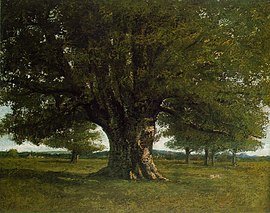The Genealogies of Modernity Journal
Writing After Girard: Part II
If the fiction writer accepts the imitative laws of human interaction, then Rene Girard’s mimetic theory puts him in a tricky spot.
Trevor Merrill on writers and the problem of mimetic desire
Barbarism and Social Media
We are not built to live in the way barbarism trains us to live, whence the widespread unhappiness and dissatisfaction of technologically advanced nations.
Brian Harding on Michel Henry, social media, and the loss of interiority
Christ after 100,000 Years of Human History
A Podcast interview with Brad Gregory on the sciences, Christianity, and way history shapes us.
Writing After Girard
Girard is not only an academic theorist but a veritable agent of culture who has shaped the thinking of writers around the world…. But where there is influence, there is also the potential for anxiety.
Trevor Merrill on novel writing after Girard
Medieval Ecocriticisms
To my surprise, I found Pope Francis a medievalist, St. Francis an eco-theologian, and a papal encyclical a work of literary ecocriticism.
Kathryn Mogk Wagner on medieval studies and ecocriticism
Inventing the Sovereign State
In telling a story that accounts for sovereignty, we can think through the possibility of a politics without sovereignty and the implications that such a politics would have on liberatory politics
Ali S. Harfouch on modernity, Islam, and second creators
The Situation for Women Writers
Neither limited to nor ignorant of the important but circumscribed sphere of domestic life, the finest women’s writing highlight the ways in which private and public life intersect, overlap, and coinhere.
Katy Carl on Virginia Woolf and Sigrid Undset
Inevitable Time in Romeo and Juliet
Time collapses on itself as Romeo’s lingering warmth betrays the truth of his death. He lived only moments ago. And now, Juliet is only moments away from ending her own time in this world.
Krystal Marsh on the warmth of lips
Poetry as Finding Through a Falling Away
What’s different about this idea, from either Claudel or Maritain, is that poetry does not call into being through naming: it finds.
Tom Break on Anna Key’s poetry and what art does
Jansenist Orientalism
Jansenist Orientalism, a sub-species of ‘Catholic Orientalism,’ matters as a French tributary to religious modernity as such—the overlooked contribution of a prominent if persecuted minority.
Richard Yoder on Orientalism in early modernity
Waiting on Value
The possibility of an event, of perceiving a thing in the difficulty of what it is to be, of a momentary vision with an other-worldly value, is necessarily predicated on a certain degree of silence.
Tom Break on patience and contemplation
Comedy and Conversion in Marcel Proust
Something happened between Proust's early efforts and his mature masterpiece, a paradigm shift that made the author capable of transferring his legendary gifts as a comic dinner-table raconteur 'onto the page.'
Trevor Merrill on Proust’s conversion
The Value in a Foreign Song
Something, outside of human reason, outside of human meaning and of human feeling, has reached him. “The bird sings.” And the speaker hears it.
Tom Break on hearing goodness in being
Augustine, Violence, and the Novelty of Machiavelli
Machiavelli follows Augustine by demythologizing violence, stripping it of the gloss of legend and heroism. He departs from him by adding that it is necessary, excusable, and worthy of imitation.
Brian Harding on violence and political reality
Art and the Work of Holding onto Hope
Every aspect of our existence is shot through with value, and it is inconceivable to think outside of this value-replete framework. So, how do we fit in an unmade world, in a world devoid of value?
Tom Break on art, value, and a meaningless world
Spiritual Abuse and Orthodox Disavowal
Perhaps the task of history, so like that of the Gospel, is to disquiet the living with a persistent presence that rises from the dead.
Richard Yoder reflects on Jansenism and the Refusal of Sacraments controversy
Three Lessons in Beauty
Anyone who has sought to make or comprehend art has probably come across at least a few lessons on beauty—insights that, it seems, can never be exhausted.
Trevor Merrill on lodestars of aesthetic judgement























